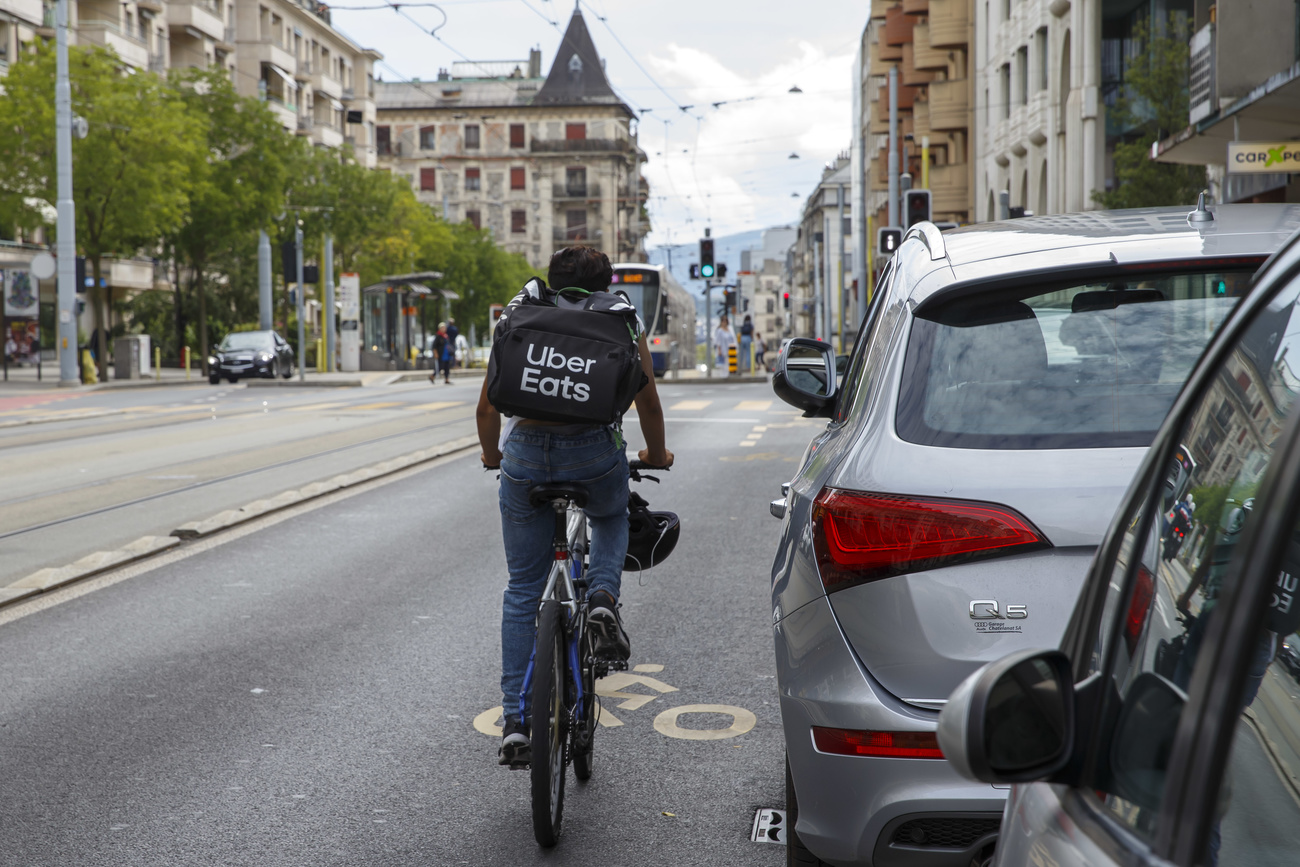
Uber Eats suffers setback in Geneva court ruling

A Geneva court has determined that the meal delivery service Uber Eats is an employer and has the obligation to hire its drivers, reports Swiss public television, SRF.
The global tech giant Uber is fighting multiple legal battles against being classified as an employer of any kind – with all the obligations and rights that would entail. Several court decisions are pending in Switzerland.
SRF’s consumer magazine Espresso has brought to light the latest, yet unpublished, judgement dealing with the issue.
In early June, the Geneva Administrative Court ruled that the food courier Uber Eats was to be classified as a personnel hirer and had to hire its drivers.
The decision is a major setback for Uber Eats, which has taken legal action against the Geneva cantonal government and vehemently denied having such a role and responsibilities in the past.
Geneva stopped the online food ordering and delivery service at the beginning of 2019 on the grounds that Uber Eats was hiring staff in Geneva without a permit. Uber Eats appealed against that decision.
The Geneva Administrative Court was receptive to the arguments of the Geneva government and classed Uber Eats as a staffing agency.
“We are very satisfied with the ruling,” says Mauro Poggia, a local official responsible for the case. “The scope of the court decision extends far beyond the canton of Geneva and does not only concern the activities of Uber Eats.”
Just like the Uber ridesharing platform, which allows people to offer taxi services, Uber Eats‘ employees can choose when they work and get paid per delivery.
Federal appeal
“This decision reflects neither the model we work with nor the reasons why couriers choose to use the Uber Eats app,” Uber Eats told Espresso. “The couriers are completely free to decide when, how often and for how long they use Uber Eats-App and whether they wish to carry out other activities. We will appeal this decision at the Federal Court.”
Kurt Pärli, a law professor at the University of Basel, notes that if the Federal Court upholds the decision, other cantons would have to follow Geneva’s approach.

In compliance with the JTI standards
More: SWI swissinfo.ch certified by the Journalism Trust Initiative

























You can find an overview of ongoing debates with our journalists here . Please join us!
If you want to start a conversation about a topic raised in this article or want to report factual errors, email us at english@swissinfo.ch.